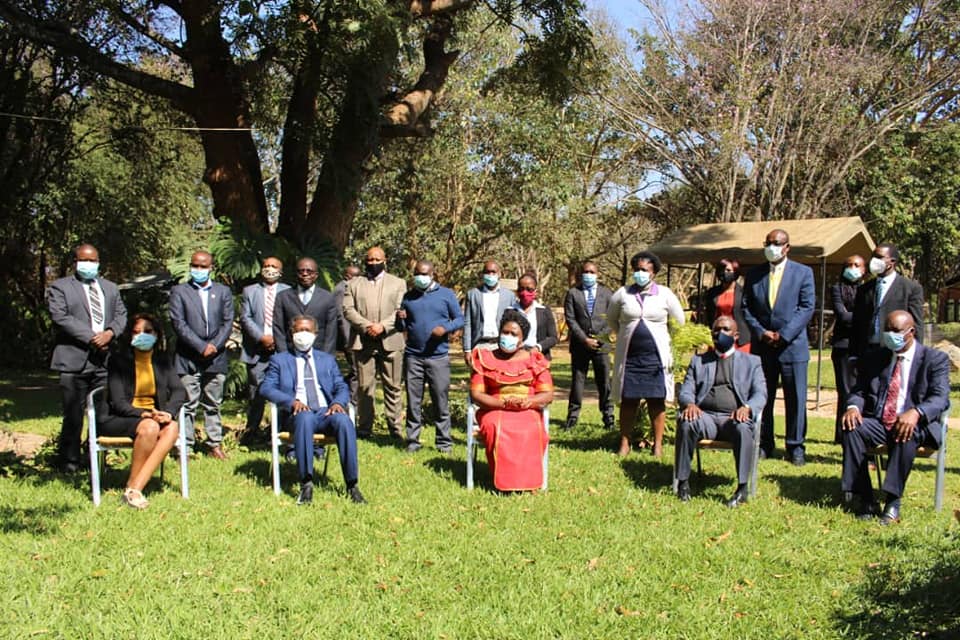Lusaka, Friday, 24 July 2020: Selected Permanent Secretaries (PSs) from the Zambian Government, their representatives and members of the civil society have been sensitized about the COMESA Early Warning System Vulnerability Assessments (COMWARN SVAs) strategy and the Continental Structural Vulnerability and Resilience Assessment (CSVRA).
The one-day session was conducted in Chisamba, 50 kilometers north of Lusaka. The objectives were to obtain PSs inputs on the implementation of the SVA programme for Zambia, and to appraise them on the progress made to institutionalize the SVA process in the country. This is a follow-up on the national multi-stakeholder consultations conducted in September 2018 and May 2019.
The participants also discussed and develop a roadmap on how to take forward the African Union CSVRA process. With the COVID-19 pandemic in the region, Member States such as Zambia can utilize an efficient early warning system to track, monitor and prepare adequately for any disaster.
Zambia’s Minister in the Office of the Vice President Olipah Phiri indicated that the government is on course to undergo a voluntarily structural vulnerability assessment in line with the African Union resolution. Speaking when she opened the workshop, the minister added that in order to effectively respond to all emergencies, the Government has prioritized the establishment of a people-centred early warning system which will ensure timely dissemination of information to communities at risk for them to take early action.
“To this end, the Disaster Management and Mitigation Unit (DMMU) under the auspices of the World Bank is currently putting up a modern National Emergency Operations Centre (NEOC) which will act as a command and control centre for handling all emergencies in the country,” she said.
She described the COMWARN Training as timely given that the country is also preparing for the General Elections in 2021 adding that the government was establishing a Situation Room soon to act as an early warning system for monitoring all the indicators that may trigger internal conflicts.
The meeting noted that conflicts triggered by Climate Change related issues such as access to water and land due to droughts are on the increase. For Sub Sahara Africa alone, Climate change accounts for about 30% of internally displaced persons. However politically, socially or economically motivated conflicts also contribute to the internal displacement of people hence the need to have structural vulnerability and resilience assessment and mitigation strategy.
Secretary General Chileshe Mpundu Kapwepwe, urged the PSs to champion the SVA and CSVRA processes at the national level and start the process of undertaking the process forward by officially writing to the AU.
“COMESA and the AU will work closely together to mobilize the necessary resources for the CSVRA process and we look forward to Zambia being a leader in the region in volunteering and undergoing the CSVRA Process,” she said in a statement presented by Assistant Secretary General in charge of Programmes, Ambassador Kipyego Cheluget.
The PSs were trained on the various aspects of the SVA including its methodology, data sourcing, extraction and interpretation and creation of a national bureau to coordinate SVA process at the national level.
Meanwhile, the African Union through its representative Ambassador Fred Ngonga who joined the meeting virtually said his organisation was ready to provide support to all its Member States in their efforts to promote peace and stability.
COMESA has so far disseminated SVA outputs including holding of national multi-stakeholders’ consultations in Uganda, Zimbabwe, Kenya and Zambia. The Secretariat has also conducted two Training of Trainers (ToT) workshops in Zambia and Kenya for members of their national bureaus.

